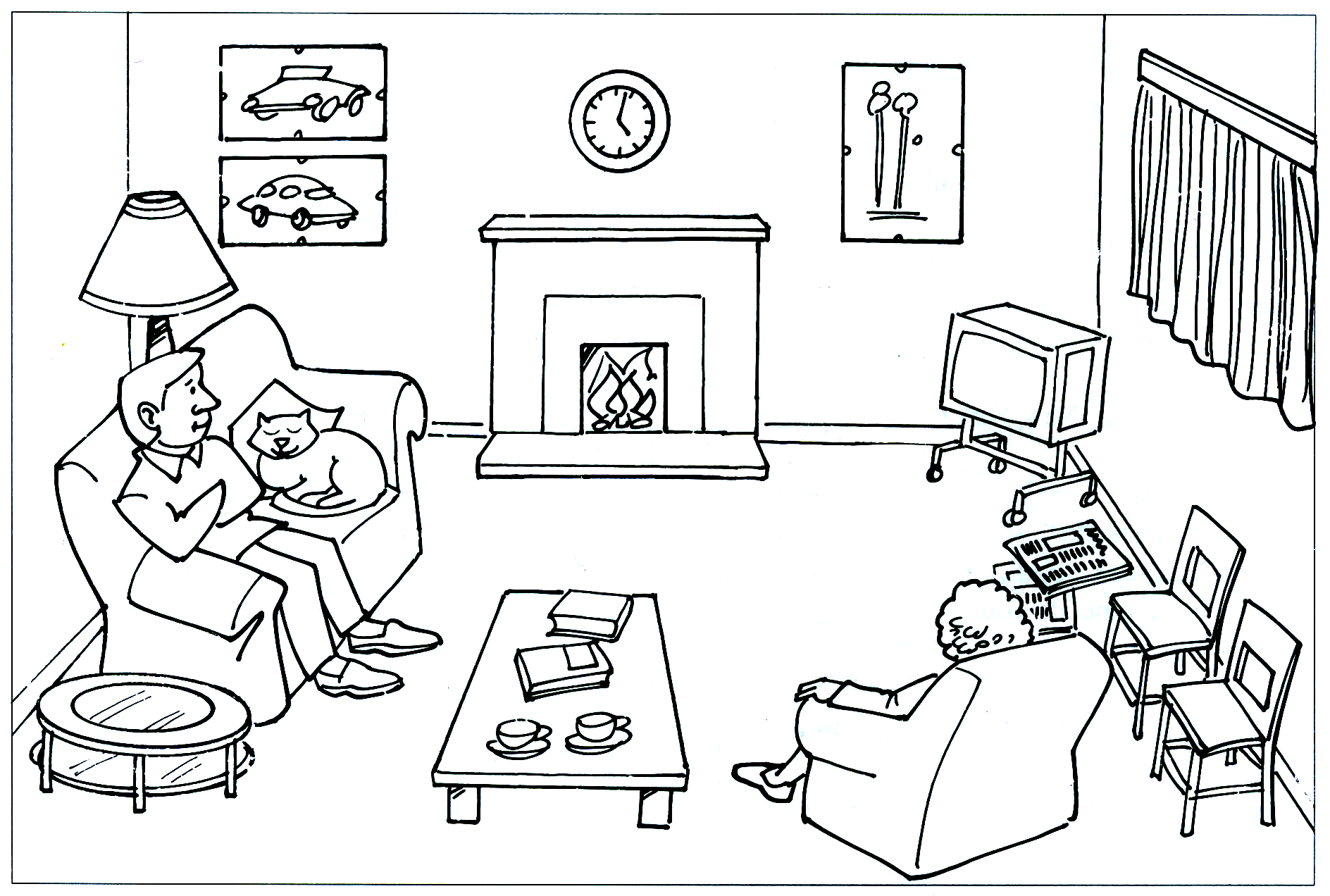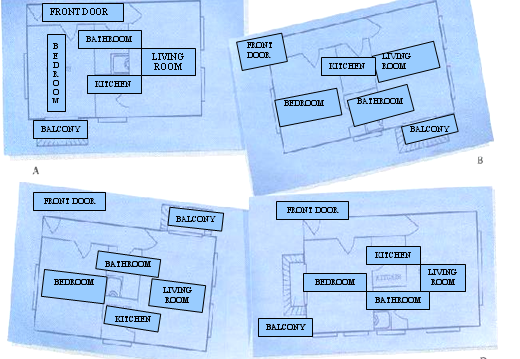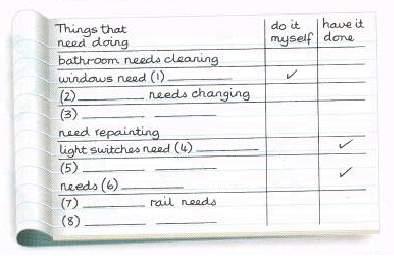
- •Волгоградский государственный педагогический университет
- •Part II. Vocabulary notes
- •Syn to live a long way (from)
- •Vocabulary exercises
- •Part III. A house or a flat? topic I: living in a house essential vocabulary
- •Vocabulary exercises
- •Reading text a
- •Text exercises
- •Word combinations and phrases
- •Text exercises
- •Conversation practice
- •Topic II: living in a flat essential vocabulary nouns verbs
- •Vocabulary exercises
- •Reading text a
- •Notes on the text
- •Text exercises
- •Text b MyFavourite Room
- •Text exercises
- •Conversation practice
- •Part IV. Writing text sharing a flat.
- •Exercises
- •Part V. Listening
- •Part VI. Grammar
- •B. Other Means of Expressing Future Actions in English (Другие способы выражения будущего времени а английском языке)
- •B. Degrees of comparison
- •Grammar patterns
- •Indefinite pronouns Неопределённые местоимения
- •D. Оборот there is/there are
- •Типы предложений с оборотом there is (are)
- •Part VIII. Speaking
Part V. Listening
Exercise 1. Look at the pictures together. Listen to someone describing them. There are five mistakes in each description. Say “Stop!” when you hear a mistake.

Picture 1

Picture 2

Exercise 2. Listen to the description of the kitchen and fill in the gaps.
It’s a modern kitchen, nice and clean with a lot of cupboards. __________ ’s a washing machine, a fridge, and a cooker, but there isn’t a dishwasher. There are some lovely __________ on the walls, but there aren’t any photographs. There’s a radio ________ the cooker. There are some flowers, but there aren’t _________ plants. On the table there are some apples and oranges. Ah! And there are ________ cups and plates next to the sink.
Exercise 3. 1)Listen to the telephone conversation and decide which of the four flats below, A, B, C or D is being described.
A B
C D
2) Listen again and tick () the boxes to show which of these things the flat has.
|
|
yes |
no |
not mentioned |
|
lift balcony phone shower bath garage cooker fridge central heating
|
|
|
|
|
Exercise 4. Listen to the conversation and complete Sharon’s notepad.
| |||
Part VI. Grammar
A. THE FUTURE SIMPLE TENSE
(БУДУЩЕЕ НЕОПРЕДЕЛЕННОЕ ВРЕМЯ)
ФОРМООБРАЗОВАНИЕ
Future Simple образуется с помощью вспомогательных глаголов shall (для 1-го лица единственного и множественного числа) и will (для 2-го и 3-го лиц единственного и множественного числа) и смыслового глагола в форме инфинитива без частицы to. В разговорной речи чаще употребляется вспомогательный глагол will всех лиц (или его сокращенная форма ’ll):
I’ll take it. He’ll say it again.
Affirmative and Negative sentences
|
I/We |
will (’ll) will not (won’t) |
be there come to my friend’s place visit my best friend win the first place eat a sandwich pass the exam |
next Monday. tomorrow.
|
|
He/She/It/They | |||
|
You/You |
General questions
|
Will
|
I/we he/she/it/they you/you |
be there come to my friend’s place visit my best friend win the first place eat a sandwich pass the exam |
next Monday? tomorrow?
|
Значение и употребление
Future Simple передает действие, которое совершается после момента речи, не ограничено никакими промежутками времени и не подразумевает законченности действия к определенному моменту в будущем:
This bus will take you to the main street.
I’ll dine at the self-service canteen at their office.
Telephone me this evening. I’ll be at home.
Leave the old bread in the garden. The birds will eat it.
Future Simple переводится на русский язык будущим временем совершенного или несовершенного вида.
Future Simple не употребляется в придаточных предложениях времени и условия, т.е. после таких союзов, как when, before, after, till, until, as long as, as soon as, if. В придаточных предложениях этого типа в значении будущего времени употребляется Present Simple.
I’ll talk to him when he comes.
If you are free, come and help me on Tuesday.
Примечание. Если союзы if и when вводят дополнительные придаточные предложения, то будущее время употребляется после них по общему правилу:
Ask him when he will begin his course of lectures.
С Future Simple, как правило, употребляются следующие наречия: tomorrow, the day after tomorrow, one of these days, next week …, in the near future, soon, some day, in two days, in a year, in a month.

